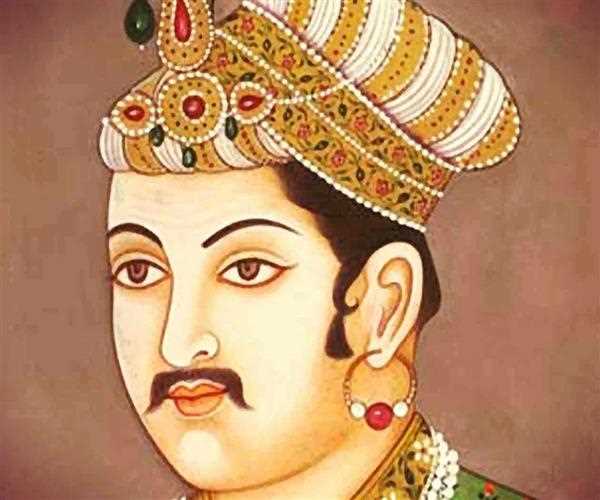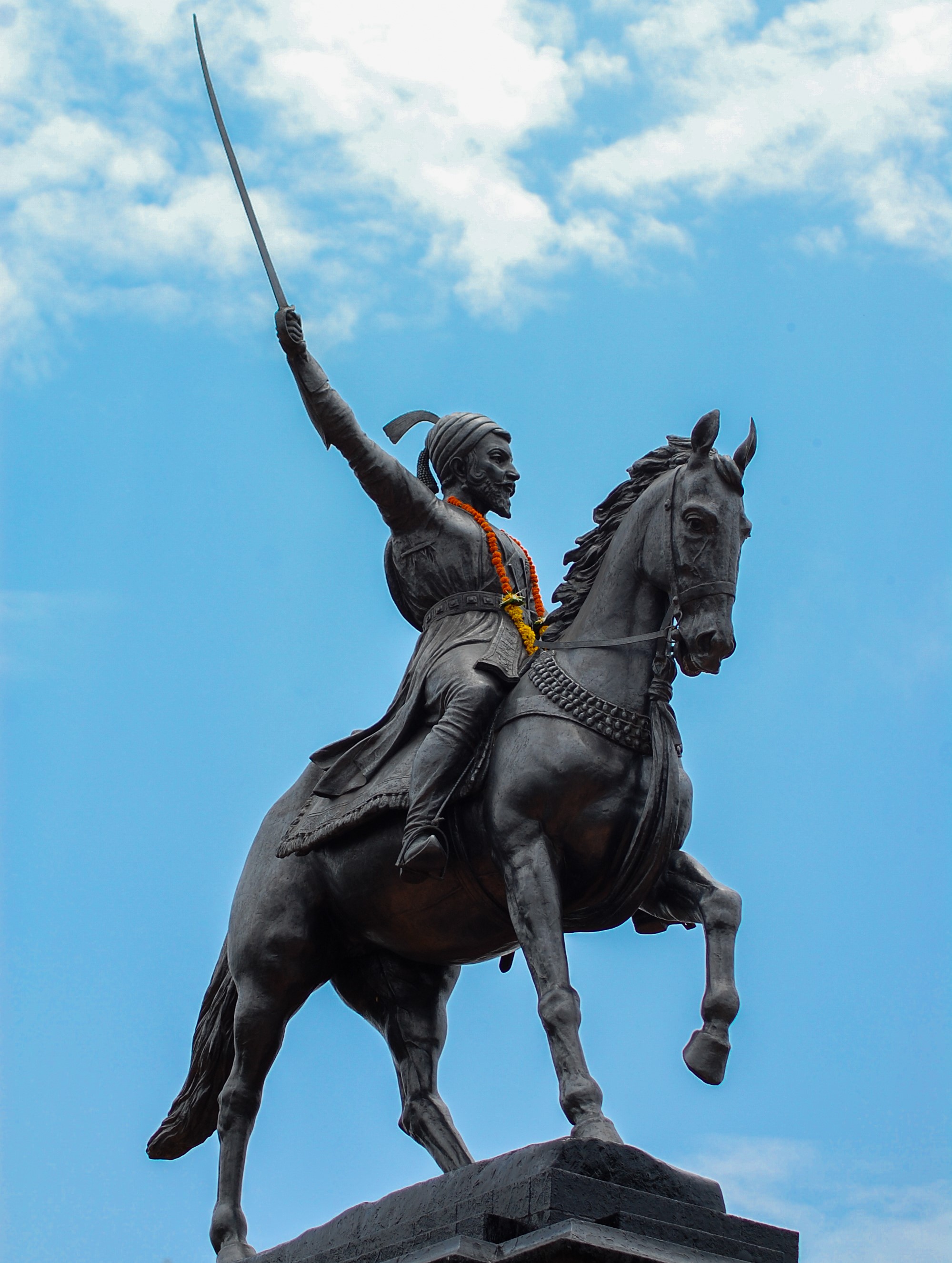
28-Dec-2023 , Updated on 12/28/2023 9:00:55 PM
Why we call Akbar the Great not Shivaji the Great?
The question arises here only: Why do we call Akbar the Great instead of Shivaji the Great?
I wonder what would have been the perception of whoever added the word great to Akbar at that time. People's perception must have been that Akbar was a great person but they have forgotten that at that time great people like Maharana Pratap, Maha Padmanand, Chandragupta Maurya , Shivaji, and Chanakya never used the word great, it is very surprising that in their future they never used the word great.
And this thing started from history textbooks because earlier people did not know English and did not know what was the meaning of great. When at that time Maulana Azad became the education minister of India, he wrote that Akbar was great and also wrote in the CBSE board, and then people started using this great word with the Mughal rulers who did nothing for our country but exploited our lives.
The notion of Akbar's greatness has been artificially constructed by a pseudo-secular group following a separate agenda to please the Muslim community. He never directly participated in the warfare. In the past, he tactfully removed his guardian Berum Khan, similar to swiftly eliminating an unwanted presence. He then strategically waged a war on his behalf and subsequently attempted to forge alliances with the fragmented Rajput community of Rajasthan by entering into matrimonial relationships with their daughters and sisters. Those who fought for him were rewarded with elevated ranks such as Mansabdar and Risaldar, while those who opposed him, like Rani Durgawati and Begum Chand Bibi, were ruthlessly defeated.
During the Chittorgarh war, despite surrounding the fort with his army for an extensive period, he ultimately resorted to a tragic decision after the successful conquest of Jamal - ordering the execution of over 50,000 Rajput soldiers. Akbar held the top position among those renowned for their womanizing ways. He entered into matrimony with numerous women to expand his collection of wives, amassing a harem of over 3000 consorts. He strictly prohibited Hindu men from marrying Mughal women. He simply eliminated the Jajiya tax, a discriminatory levy imposed on Hindus.
Instead of engaging in direct combat with Rana Pratap, he employed Man Singh of Amber to fight the war on his behalf. Man Singh did not engage in battles against the Mughals to protect the honor of his nation, but rather fought numerous wars on Akbar's behalf. This family successfully persuaded other Rajput families to offer their daughters and sisters as a means to safeguard their kingdom.
Maharana Pratap and Chhatrapati Shivaji valiantly battled against the Mughals to safeguard their kingdom, uphold the dignity, and protect the Hindu population under their rule.

Regrettably, individuals exhibit such a high level of susceptibility, readily accepting fiction as truth. Archaeologist and historian Dr KK Mohammed, renowned for discovering Akbar's ibadatkhana at Fatehpur Sikri in the 1980s, asserts that although Maharana Pratap holds significance in history, drawing comparisons between him and Akbar is unjust.
The scholar supports his argument by sharing a historical incident wherein the Portuguese in Hormuz tied a copy of the Quran to a donkey's neck and let it loose in the marketplace. After being informed, Hamida Bano Begum, Akbar's mother, suggested the emperor attach the Bible to a dog's collar and set it free in Agra. Akbar declined or Akbar said no. He reasoned that if the Portuguese actions were incorrect, then this would also be incorrect. The way he stood revealed his exceptional intellect and determination.
Akbar no doubt was not a great ruler because Akbar was a follower of the religion of Islam and he did everything good for his religion of Islam, on that basis we cannot call him great.
While he practiced the Muslim faith, his empire always reflects Islamic principles. He formed matrimonial alliances with several Hindu princesses and demonstrated exceptional tolerance. Akbar is referred to as "great" due to his policies of tolerance, secularism, and liberalism, which earned him this epithet. Therefore, he serves as the ideal embodiment of a national monarch. But to be honest, he was not a great person.
He embraced Indian culture and advocated for the concept of 'Sulehkul'. Despite his lineage tracing back to Babur, he embraced India as his own country and became thoroughly assimilated into its culture, ultimately adopting an 'Indianised' identity. It is worth noting that Akbar's reputation has been exaggerated and romanticized in Bollywood films, perpetuating a popular myth surrounding his reign.
There is no distance between the historical evidence and facts. He was not so highly regarded grandson of Babur, the invader who entered India to acquire its riches by looting their wealth. He devoutly adhered to the religious obligation of eliminating non-believers, demolishing their places of worship, and advocating for the conversion of those who do not follow Islam.
I would like to end this view with the note that stop being calling “Akbar the great” as he was not great and second thing, spread awareness among the society that history textbooks changed their subject matter and showing the great rulers in India who contributes towards our nation and follows hindutva culture. Our Indian government is working towards the change and soon we will see it.

SEO and Content Writer
I am Drishan vig. I used to write blogs, articles, and stories in a way that entices the audience. I assure you that consistency, style, and tone must be met while writing the content. Working with the clients like bfc, varthana, ITC hotels, indusind, mumpa, mollydolly etc. has made me realized that writing content is not enough but doing seo is the first thing for it.
Join Our Newsletter
Subscribe to our newsletter to receive emails about new views posts, releases and updates.
Copyright 2010 - 2026 MindStick Software Pvt. Ltd. All Rights Reserved Privacy Policy | Terms & Conditions | Cookie Policy